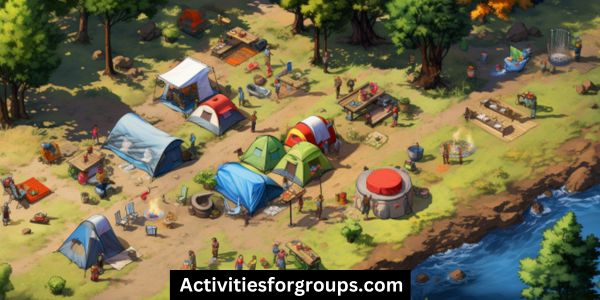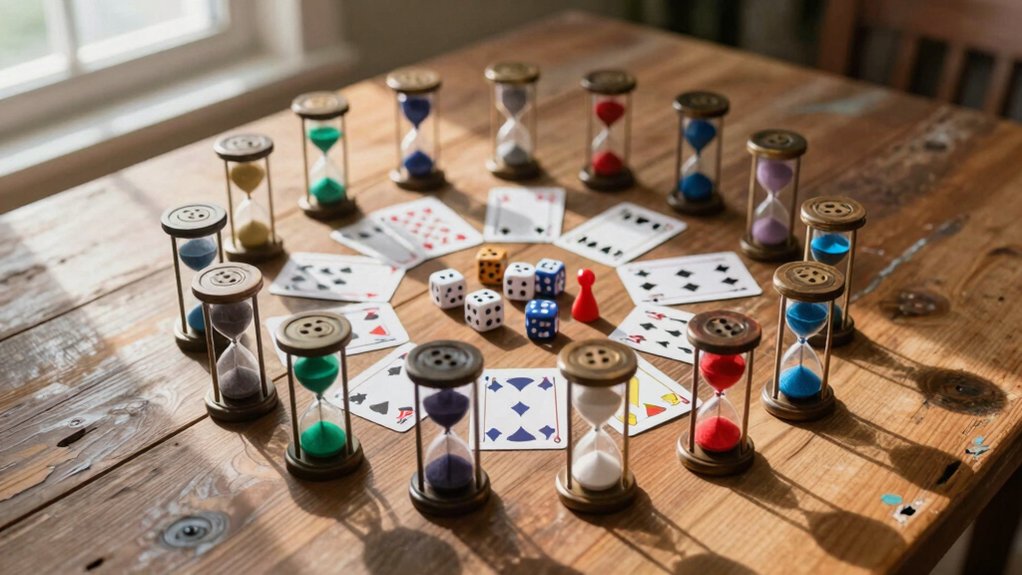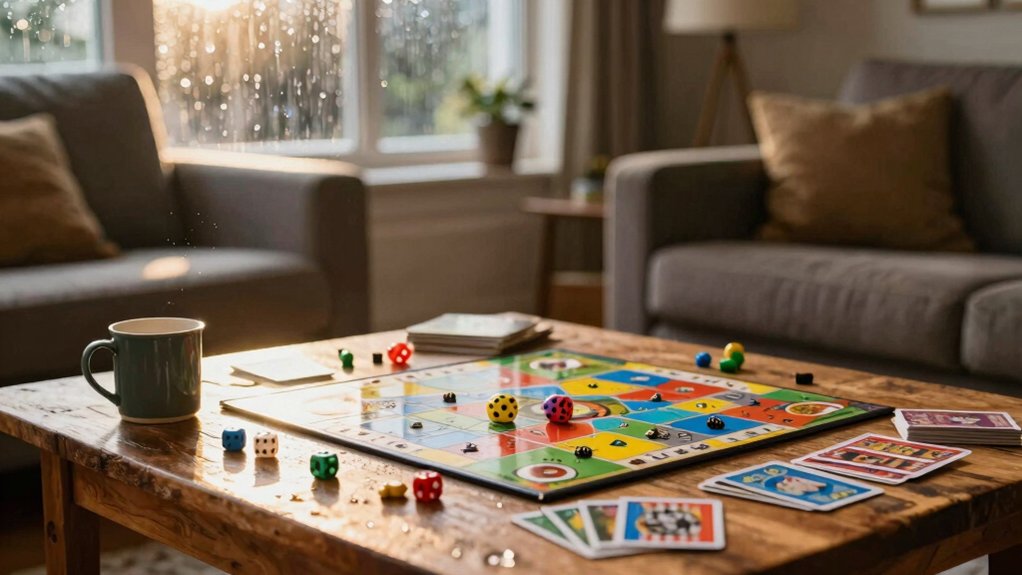Going on a group camping trip is a great way to connect with friends and family. However, it can be a daunting task to plan and organize. Don’t worry, with a few simple steps you can easily plan a successful camping trip.
First, gather supplies. Make a list of all the essentials such as tents, sleeping bags, cooking equipment, and food. Divide the list among the group members to ensure everyone contributes to the preparations.

Next, research the campsite. Look for a location that suits the needs and preferences of your group. Consider factors such as facilities, activities, and accessibility. Make reservations if necessary and familiarize yourself with any rules or regulations.
Once you have chosen the campsite, establish group rules. Decide on things like quiet hours, cooking responsibilities, and waste management. It’s important to have clear guidelines to ensure everyone has an enjoyable experience.
Assign roles to each group member. Designate someone as the trip leader who will be responsible for coordinating activities and making decisions. Other roles can include cooking, cleaning, and first aid. This ensures that everyone is involved and contributes to the smooth running of the trip.
Lastly, prepare for any emergencies. Pack a first aid kit and familiarize yourself with basic first aid procedures. Make sure everyone knows how to contact emergency services if needed. It’s always better to be prepared for the unexpected.
Now that you have a plan in place, it’s time to enjoy your group camping trip. By following these steps, you can ensure that your trip is well-organized and enjoyable for everyone involved. So, let’s get started and make your group camping trip a success!
Gather Supplies
Gather all the supplies you’ll need for your group camping trip by planning ahead and getting organized. Start by making a list of essential items and planning your budget. Consider how much you can afford to spend and what type of camping you’ll be doing.
When packing, make sure to include the bare necessities such as a tent, sleeping bags, first-aid kit, and food. Don’t forget to pack cooking supplies, flashlights, and matches. Make sure to bring enough water for everyone, and don’t forget sunscreen and insect repellent. Also, bring a few extra blankets and towels.
Lastly, bring a map and a compass so you can find your way around. Don’t forget to pack a few games to entertain yourselves in the evening. Plan your packing list in advance and stick to it so you don’t forget anything.
With proper planning and careful packing, you can make sure your group camping trip is a success.
Research Campsite
Once you have gathered your supplies, the next step in planning your group camping trip is to research the campsite. When selecting a site, consider the number of people in your group, the activities you plan on doing, and the type of terrain you’ll be camping on. Here are some tips to help you with your research:
- Check out online reviews. Reading reviews from other campers can help you plan for potential issues and learn more about the campsite.
- Research any restrictions. Be sure to double check if the campsite has any restrictions, such as fire restrictions or quiet time guidelines, that you must follow.
- Read up on the area. Learning about the plants and animals in the area, as well as any potential environmental hazards, will help you be better prepared.
- Make a packing list. After researching the campsite, make a list of the gear you’ll need to pack for your trip. This will help you make sure you don’t forget anything important.
With a little research, you can select the perfect campsite for your group camping trip, and be prepared with all the necessary gear for a successful trip.
Establish Group Rules

Establishing group rules is essential for a successful camping trip. Begin by discussing safety protocols, such as who’s responsible for carrying the first aid kit, and make sure everyone knows who to contact in case of an emergency.
It’s also important to ensure that all campers know where the boundaries are and what activities are allowed.
Planning ahead is also key for a successful group camping trip. Have an itinerary or plan of action for each day, and assign tasks accordingly. For example, assign who’ll be responsible for setting up the tents, who’ll be in charge of groceries, and who’ll be in charge of the campfire. Make sure everyone is aware of the plan and that they’re comfortable with it.
Finally, discuss any rules that will be in place for the duration of the trip. These could include rules about noise levels, cleanliness, and respecting animals and the environment.
Establishing these rules and expectations ahead of time can help everyone have an enjoyable and stress-free camping experience.
Assign Roles
Assigning roles for each camper helps ensure efficiency and accountability for the duration of the trip. It’s important to divide tasks and responsibilities among the camping group to avoid confusion and make it easier to coordinate and execute the camping trip. Here are a few tips to help assign roles for a successful group camping trip:
- Assign a leader to oversee the planning process and provide guidance throughout the trip.
- Delegate tasks such as food preparation, setting up camp, and clean up to different members of the group.
- Make sure everyone gets a chance to share experiences and contribute in some way.
- Divide any financial costs for the trip among the campers to help with costs.
Assigning roles to each of the campers is a great way to ensure that all of the necessary tasks are taken care of, while also providing an opportunity to share experiences and create lasting memories. Plus, it’s a great way to divide the financial costs of the trip and make sure that everyone is held accountable for their tasks.
Prepare for Emergencies

In addition to assigning roles, it’s important to make sure that the group is prepared for potential emergencies. Put together an emergency kit with basic items such as flashlights, first aid supplies, and a few tools.
It’s also a good idea to include an extra set of keys, a map, and a list of emergency contact numbers. Having a communication plan in place is also important.
Establish a designated meeting spot and make sure everyone in the group knows the plan. Make sure to check-in with each other at regular intervals, especially if you plan to split up into smaller groups.
If you’re heading out on a longer camping trip, it’s a good idea to have a satellite phone or two-way radio for communication in the event of an emergency.
Prepare a list of local hospitals, fire stations, and police stations, and make sure everyone knows where the closest ones are. Lastly, take a first aid and CPR class before you leave, so you can be ready to respond to any medical emergencies.
Frequently Asked Questions
What Is the Best Way to Divide up the Cost of the Trip?
When budgeting together on a trip, splitting costs between everyone is the best way. Discuss how much everyone can contribute and decide what expenses to split.
What Are Some Fun Activities to Do on the Trip?
Go hiking, play some games, and tell campfire stories! That’s a great way to have fun on your trip.
How Can We Ensure the Safety of All Group Members?
Check safety gear, plan evacuation, and communicate with all group members regularly to ensure your trip is safe.
What Should We Do if There Is Bad Weather?
If bad weather arises, be sure to pack supplies to keep everyone comfortable and safe. Have alternate plans ready to go in case you need to change up the itinerary.
How Can We Make Sure Everyone Has Enough Food?
Plan ahead by having everyone share their supplies and make a meal plan. That way, everyone has enough food.
Conclusion
You’re now ready to plan and organize a successful group camping trip!
Remember to gather supplies, research the campsite, establish group rules, assign roles, and prepare for emergencies.
With the right planning and organization, you can have an amazing trip that your group will remember for years to come.
So grab your gear and hit the road!




Leave a Reply